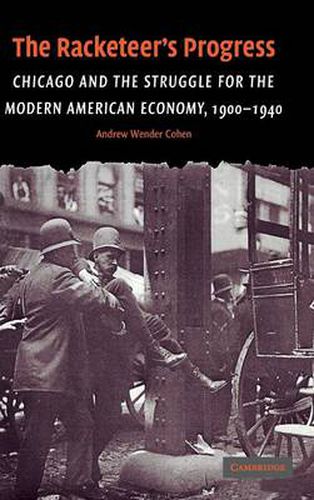The Racketeer's Progress: Chicago and the Struggle for the Modern American Economy, 1900-1940
Andrew Wender Cohen (Syracuse University, New York)

The Racketeer’s Progress: Chicago and the Struggle for the Modern American Economy, 1900-1940
Andrew Wender Cohen (Syracuse University, New York)
The Racketeer’s Progress explores the contested and contingent origins of the modern American economy by examining the violent resistance to its development. It explains how carpenters, teamsters, barbers, musicians, and others organized to thwart ambitious national corporations. Unions and associations governed commerce through pickets, assaults, and bombings. Scholars often ignore this defiance, painting modernization as a consensual process and presenting craftsmen as reactionary, corrupt, and criminal. This is ironic, for the tradesmen’s reputation derives from their successful struggle to control modernization and the emerging consumer economy. Their resistance redirected American law. Progressive-era courts rebuked the craftsmen for attempting to govern trade. In the 1920s, the tradesmen inspired new criminal concepts, such as ‘racketeering’. But the Great Depression reversed harsh laws. The craftsmen became a model for New Deal recovery statutes and a focus for constitutional debates. Meanwhile, the state began protecting unions against gangsters like Al Capone.
This item is not currently in-stock. It can be ordered online and is expected to ship in approx 2 weeks
Our stock data is updated periodically, and availability may change throughout the day for in-demand items. Please call the relevant shop for the most current stock information. Prices are subject to change without notice.
Sign in or become a Readings Member to add this title to a wishlist.


